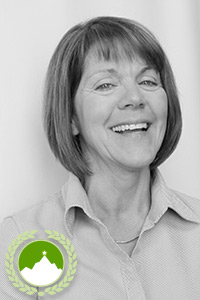Thursday, August 21, 2014 - This month, we are pleased to honor Kathy Lordo, from Hamilton County Public Health (HCPH) in Ohio, as a public health QI innovator. Kathy also wanted to acknowledge that QI is a team effort and that it would not be successful without her dedicated and passionate core team. Congratulations, Kathy!
What makes Kathy Lordo a QI Innovator?

Kathy Lordo, of HCPH in Ohio, has spearheaded the agency’s continuous QI initiatives since the QI program was implemented in 2012. She has inculcated QI deeply into the agency’s culture. Under her leadership, HCPH has completed or is in the process of completing 21 formal QI projects. The agency is consistently recognized as a top-performing public health entity. Over the past 2 years, HCPH and its staff have been recognized with significant awards, culminating in one of its programs receiving the highest-level recognition in North America, the Samuel J. Crumbine Consumer Protection Award, which recognizes the top environmental health program in North America. Kathy has encouraged staff to participate in developing QI projects and forming QI teams. Her leadership has moved the QI process into a formal recognition structure with the county Board of Health. The process has allowed the team members to formally present results of their projects to the Board. Kathy has developed and leads the agency’s Continuous QI Council, which is charged with weaving QI into all areas of the agency. She is passionate about the QI process and consistently shares credit and recognizes players from QI teams for their successes.
We asked Kathy to share some insights regarding challenges encountered, lessons learned, and advice about public health QI. Here's what she had to say!
Q: Describe one challenge you have encountered in conducting QI in public health and how you worked to overcome that challenge.
A: Inculcating a QI process into your organization doesn’t happen overnight. It’s a slow process, and it’s crucial to grow the process organically by developing program “champions,” who then cascade QI deeper into the organization by leading projects and mentoring future project leaders. By starting slowly and with a small core group, you can begin to demonstrate the value of QI and show that even with busy schedules, the process can be completed and the accomplishments are always worth the effort. We have a process in place to launch projects, present project work to an internal QI Council, track project progress and results, and incorporate improved processes into our regular plan of work. It’s important to point out that the success of the program is in large part due to a core group that has fostered the QI program into our agency and is dedicated to growing the program and its leadership.
Q: What is one key lesson you have learned in your experience implementing public health QI initiatives?
A: QI is a slow build. Start with a core team dedicated to a manageable project. Implement recommendations, share success (and credit!), and continue to introduce more people to the process. These will ultimately become your leaders and will begin a “snowball” effect of growing the QI culture in your organization.
Q: What advice would you give to public health practitioners who are new to QI?
A: Don’t be afraid to change! When people realize the process is doable and more important, that the results of their work will be implemented for process improvement, they begin to jump on board and embrace QI as a positive vehicle for change.
Congratulations, Kathy! Thank you for sharing these wonderful insights, being a champion for public health QI, and being a member of the PHQIX community!